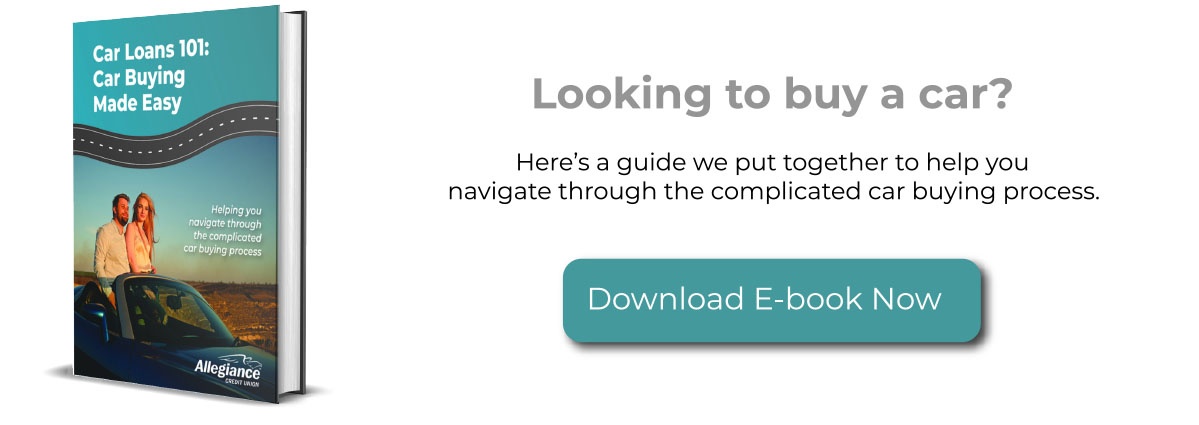Buying an automobile does not happen every day, and that adds a layer of unfamiliarity to the process. Researching the best cars available and securing a car loan presents a specific set of challenges.
In all likelihood, friends and family members will offer their opinions and experiences about the best cars and which car loan makes the most sense. But at the end of the day, you will pay the monthly car loan. In addition, you also have specific reasons for gravitating to the best cars to serve the needs of you and your family. By considering the following steps of narrowing down the best cars and identifying a cost-effective car loan, you can streamline the process.
Make A “Car Needs” Checklist
It’s not uncommon for buyers to just wing-it when car shopping. You may see one that appears adequate and get swayed by style and a persuasive salesperson. That’s a common occurrence when narrowing down the best cars for your unique purposes.
But the best cars aren’t always the ones with sleek designs. They are often the ones that get you and your family comfortably to work, school, appointments, and maybe a great American road trip. That’s why a proactive approach to identifying your real needs and typing up a checklist may provide a road map. Consider the following checklist items.
- How Many Passengers Will You Carry?
- Do You Primarily Drive in Cities, Suburbs, or Rural Areas?
- Do You Anticipate Off-Road Driving?
- Will You Require All-Wheel or Four-Wheel Drive?
- How Far is Your Work or School Commute?
- What MPG Fits Your Monthly Fuel Budget?
- What is Your Automobile Insurance Budget?
- What is the Climate in Your Area?
- How Much Cargo Do You Carry?
- What Essential Features Do You Need?
The answers to these questions can form a basis to identify which are the best cars to conduct further due diligence before making a final decision.
Locate The Best Cars For Sale
Living in the digital age offers significant advantages for car shoppers. You no longer need to spend entire weekends on new or pre-owned car dealership lots. Most dealers have uploaded their entire inventories of new and used vehicles. These online listings generally include details such as mileage, MPG, and asking price.
There are also private automobile listings on sites such as Craigslist, Autotrader, Carmax, eBay Motors, and many others. Spend some time researching the best cars for your purposes in the immediate area. You will also have the option of searching out-of-state if you are open to travel or having a vehicle delivered. Consider typing up a short-list of new and pre-owned vehicles with hyperlinks.
Now circle back and conduct your due diligence by leveraging consumer protections such as Kelly Blue Book values, and Carfax reports. There’s no reason to overpay or buy a money pit with these and other resources only a mouse-click away.
Schedule A Test Drive
Once you have narrowed your list to the best cars that meet your criteria, it’s time to make a few calls and plan a test drive. The average test drive runs only 10-15 minutes and should include a stint on the highway. Many new and pre-owned dealerships offer test drives on a first-come basis. Just be sure to bring your driver’s license and proof of insurance.
Private car sales typically require matching schedules with the owner. If you use resources such as Craigslist to locate a vehicle, the process may begin with an email. It’s not unusual for people selling vehicles on public websites to make certain you are a legitimate buyer before providing a cell phone number and address. Once you get behind the wheel, these are some telltale items to consider.
Brakes: Test the brakes in a vacant parking lot if possible. In all likelihood, the vehicle has been sitting a while, so they may feel a little spongy or weak at first. This should shake off after a few presses. If it doesn’t or if the vehicle pulls to one side, it may need repairs.
Suspension: If the car makes seemingly unusual noise when negotiating turns or potholes, there may be a problem.
Engine Noise: Consider whether the engine runs quiet or if there are specific sounds it makes. For example, a clicking noise may indicate the vehicle needs the lifters replaced.
Comfort: The best cars are generally the ones that you feel safe, secure, and comfortable driving. Consider rating the vehicles that are in good condition in terms of driving ease.
With a short-list of options, it’s time to start drilling down on the financial end of the process. Some of the vehicles on your list may push the top-end of your budget. However, a cost-effective car loan may reduce the monthly payment enough to afford a vehicle at the top of your list.
How To Find The Best Car Loan
Before even engaging in price negotiations, it may be in your best interest to separately conduct car loan research. This can be done while you are narrowing your list down. There are plenty of online lenders, but many come with hidden or excessive application fees.
Local banks and credit unions almost always provide personalized service and the lowest possible interest rates for automobile loans. These are things worth considering as you prepare to secure a great car loan.
Time Limit:
It’s essential to know that too many pulls on your credit history can cause it to tick down. By keeping your car loan search to two weeks, you can minimize any impact on your credit score.
Credit History:
Free online resources such as NerdWallet offer a general assessment of your credit score and history. You can also get copies of your credit history and score from reporting agencies such as Equifax, Experian, and TransUnion, among others. This will provide a clearer picture of your ability to get a low-interest rate.
Down Payment:
Take a look at your available savings and decide on how much to shift to the down payment. Sound financial planning dictates that you leave a safety net in place. It’s generally not advisable to pull all or most of your savings.
Calculate Loan:
There are two distinct factors to consider when doing your car loan math. The first is fitting the monthly payment into your budget. It’s critical that you include enough financial latitude to ensure you can make payments consistently. Missing a payment damages your credit history and ability to secure a future car loan. The second item involves calculating the dollar-amount interest paid over the life of the loan. Getting a comfortable interest rate from a local lender can result in substantial savings.
Gain Pre-Approval:
You do not necessarily have to find the perfect car before getting loan qualification. The pre-approval process simply lets you know a maximum borrowing limit. The process typically takes 1-2 business days and can remain in place for up to 60 days, in some cases.
A search for the best cars available and conducting due diligence does not have to be a stressful or uncertain process. Having a research plan and implementing it will narrow your list down. Working with a local lender to secure the lowest interest rate possible for your car loan will save time, energy, and money over the long haul.
For more details on how to find the best cars and car loan for your needs and more tips to save you time and money on your car buying journey, review our "Car Loans 101: Car Buying Made Easy" complete guide!
Sources
https://www.carfax.com/vehicle-history-reports/
https://www.kbb.com/
https://www.consumeraffairs.com/automotive/online-car-buying-sites/
https://www.edmunds.com/car-buying/10-steps-to-finding-the-right-car-for-you.html


